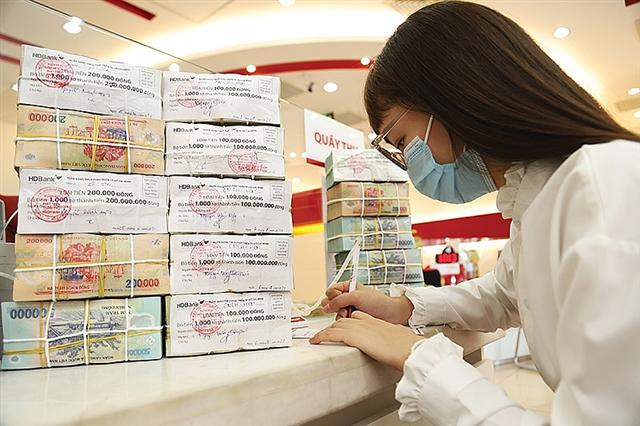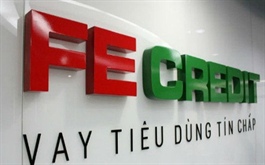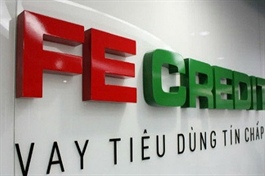The dollarisation and cash economy puzzle
The dollarisation and cash economy puzzle
The more than 5-year-old Decision No.2589/QD-NHNN from the State Bank of Vietnam (SBV) lowered annual interest rates to zero, applicable for deposits in USD of institutions and individuals.

The dollarisation and cash economy puzzle (illustration photo)
|
The decision has been considered one of the most effective tools in the SBV’s fight to reduce and eradicate the dollarisation problem in Vietnam. To assess how effective the SBV’s move has been, we first need to understand what dollarisation is and how it can be gauged.
Dollarisation refers to a situation where the USD or other foreign currencies have replaced part or the whole of a domestic currency. The currency that causes dollarisation is not necessarily just the USD as its name would suggest. Accurately gauging the degree of dollarisation – that is how much foreign currency bonds and bank deposits, as well as foreign currencies per se, are held by residents – is difficult.
An alternative indicator that was proposed by the International Monetary Fund (IMF) and has been widely used to approximate dollarisation is the share of foreign currency deposits in the entire deposits placed in the domestic banking system.
The SBV releases in its website monthly data on the so-called total means of payment consisting of such items as deposits in the local currency of economic entities, and savings in VND of residents as of February this year as the latest. The SBV also releases monthly data on the share of money in circulation. The formula for total means of payment applicable in Vietnam is an addition of the money in circulation plus any VND and foreign currency deposits of economic entities and residents.
Foreign currency deposits of economic entities and residents can then be calculated by subtracting VND deposits of the economic entities and the residents from total means of payment. The computation results show that the share of foreign currency deposits has trended upwards since 2015, which is also the year when Decision 2589 was promulgated to cap the USD interest rate at zero per cent. The share peaked at 6.2 per cent in the end of 2020 and going into February.
If we calculate the share of foreign currency deposits in total bank deposits, which is the IMF’s proposed indicator for the degree of dollarisation, the result will be even larger, because total bank deposits are part of total means of payment.
In other words, dollarisation in Vietnam tends to have deteriorated again even after USD deposit rates were capped at zero.
A reason for this situation may be that, although USD deposit rates are capped, depositors still find ways to earn positive returns on their deposits, making USD holdings still meaningful, especially when the USD is expected to appreciate against the VND. Also, banks still pay positive interest on deposits in foreign currencies other than USD, so depositors may have opted to deposit their savings in other foreign currencies, making the foreign currency deposits-related numbers not going down as expected.
Another possible reason is related to the risk aversion towards macro instabilities, which has still been there, incentivising individuals and businesses to hold more foreign currency-nominated assets, particularly when total means of payment increase as sharply as in 2020 and early 2021 amid slower GDP growth that fuels inflation risk.
In terms of the increasing cash economy, the amount of cash held by residents and businesses trended downward slightly from 2017 to 11.1 per cent of total means of payment at the end of 2020, but then strongly bounced back in the early months of 2021. Thus, it can be said that individuals and/or businesses suddenly became more interested in holding cash than depositing them in banks.
Corresponding to the rise in cash holdings was a sharp fall in VND deposits of economic groups and a hike in VND deposits of residents.
While it is difficult to find the exact reason for economic entities’ withdrawal of funds from the banking system, this could be related to the current stock and real estate fever which have caused businesses to invest in securities and property. They may have subsequently allocated part of the realised sales proceeds to individuals and kept the rest in cash to continue their investing.
Faced with greater dollarisation and increasing cash economy, the SBV should consider amending, and at best removing, its regulation on the USD deposit rate cap, because despite the zero per cent ceiling, individuals and businesses still make deposits in USD and other foreign currencies. Moreover, just setting the cap for USD deposits but not for other currencies is essentially no different than seeing dollarisation only related to USD but no other foreign currencies.
The most effective and fundamental solution would still be to continuously improve confidence in the VND so that individuals and businesses would no longer need to hoard foreign currencies (including USD), and they could easily purchase foreign currencies from the bank for their plausible needs.

























